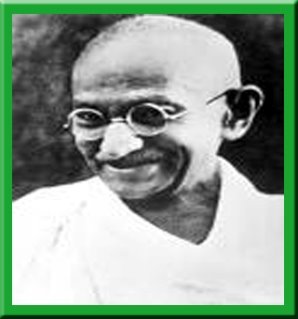Every state needs strong institutions and political institutions are one of the explanatory factors for successful democratization. I would like to emphasize the importance of coalitional institution-building in democratic transitions.
Ideas and movements can transform politics and society. However, it is important to answer some fundamental questions before the transformation. For our democratic activists, we need to answer the following questions to ourselves such as
What are our claims, precisely, and what normative standards do we justify them, not only ourselves but also to others?
Who is the ‘we’ in these questions, exactly?
How does one organize that ‘we’ in practice, how does one appeal effectively to supporters; how does one organize them for political action; and can that organization survive in political struggle? (Gavenda, 1982)
These questions are important in analyzing our past struggle and formulating the strategies.
Political democratization requires mature and accountable political actors, among the leaders as well as in the various segments of society who are capable of creating and supporting representative institutions to settle and negotiate divergent orientations and interests around a common aim and a balanced view of the future. This comes with the demand for coalitional institution-building. (Krischke, 2001:9)
Successful democratization process needs the actors to the public sphere to support and establish a stable democratic society. Drache claimed that the public sphere is not a neutral meeting place. Its principal virtue is that public life is a series of collective engagements that are negotiated and change as the balance of social forces shifts from elites to the democratic end of empowerment. (Darche, 1999:27)
Indeed, both social and political actors should be oriented towards mutual understanding. For this, we must go through a gradual process of decentration. Decentration opens for the search for truth, normative justice and veracity among actors, leads to a continuous revision of the traditions and values inherited from the past so that it promotes a participatory reform of the institutions. If all political actors for Burmese democratic struggle (parties, organizations and ethnic groups) go through decentration process, it may produce more positive synergies for democratic consolidation.
Taking lessons from the painful experience in 1988, we have to consider institution-building as soon as the military regime has been kicked out by the people. It is the creation of governance capabilities. It has some foundations of _
reformation of old organizations and institutions
improvement of efficiency and effectiveness of existing institutions
restoration of destroyed institutions and
enhancement of authority’s professionalism
For successful democratization, support from all three levels of society is essential. These include _
1. Political elites have to understand the perils of political fragmentation. They have to have the ability to accommodate divergent interests. Most importantly, they must have the will to establish democracy and they must be willing to accept limits to their political power.
2. On the middle-level, the creation and institutionalization of political parties that represent all groups of the population are necessary to support a pluralistic democracy. Opinion leaders and NGOs have to be educated and informed. Appropriate laws and institutions have to be created; electoral laws, electoral commissions, democratization of institutions, etc.
3. Civil education, on the grass-root level, prepares the population for democracy through democratization of local institutions and teaching of tolerance and the ability to balance different opinions through cooperation and compromise. In the context of a post-conflict situation, humanitarian concerns such as deep partisanship and trauma will also have to be addressed. Furthermore, it should provide individuals with the capacity to identify demagogues and the threat that emanates from them. (Conflict Management Toolkit, SAIS, John Hopkins University)
It seems clear that although the Burmese military regime claimed they will go through their own Road Map of democratization, it could be impossible because it has lack of the institution-building at all levels of society.
In conclusion, institution-building is one of the most important factors for successful democratization and we all democratic people should go through the process of decentralization to emerge as the mature and accountable political and social actors.
Khin Ma Ma Myo (5/11/2006)
References
¨ Darche, D. (1999) The Return of Public Domain after the Triumph of Markets, Roberts Centre for Canadian Studies, Toronto, York University
¨ Krischke, P.(2001) The Learning of Democracy in Latin America: Social Actors and Cultural Change, Nova Science Publishers, Inc. New York
¨ Gavenda, J (1982) Power and Powerlessness, UrbanaII, University of Illinois
¨ SAIS, The Conflict management Toolkit, John Hopkins University, Web version
¨ UNDP (1999), Governance Foundations for Post-Conflict situations: UNDP’s Experiences , Management Development and Governance Division, UNDP
¨ Vuckovic, Gojko (1999) Promoting peace and democracy in the aftermath of the Balkan wars: comparative assessment of democratization and institution-building processes in Croatia, Bosnia and Herzegovina, and former Yugoslavia, World Affairs, No. 162 (1), Summer 1999, pp. 3-10


































